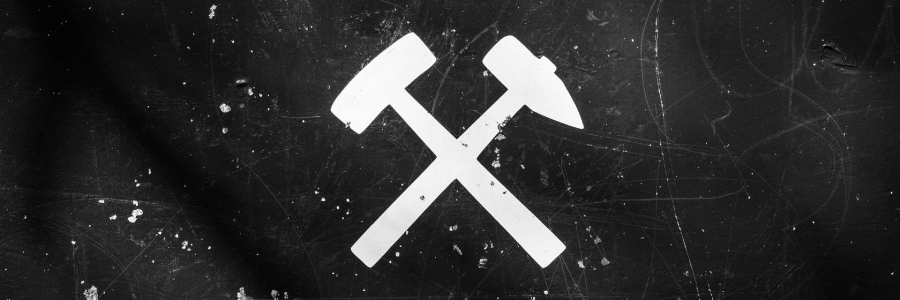While you won’t really recognize the small transaction fee it is the very reason blockchains will live forever. Here is the reason why.
Transactions of cryptocurrency based on a blockchain are basically based on decentralized trust, very much unlike traditional banking and payment systems. It is the network, that confirms a transaction as valid.
In order to understand how this is achieved it is necessary to know what is included in a transaction. A transaction contains everything necessary to confirm the ownership of the funds, how much should be transferred and to whom.
When this information has been processed by the network, the new owner can use the coins. This is the so-called chain of ownership. It must be possible to validate the chain of ownership independently by anyone in the network. This means it needs to be part of the public ledger of the blockchain. The mining fee is the reward for a miner for adding a transaction to the blockchain.
Why fees are important
Taking a look at Litecoin, miners generate on average a new block every 10 minutes for solving a cryptographic puzzle, the so-called Proof Of Work. A block contains a lot of transactions, but usually never all of them.
When a user creates a transaction it is placed in a pool with other pending unverified payments. When miners build a new block, they add unverified transactions to the new block. Usually there are more transactions than what fits in a block. Therefore miners focus on those with the highest fees on offer.
When a miner creates a block, they receive a certain amount of coins as a reward. A miner of the Bitcoin network for example receives 12.5 bitcoins per block. Additionally, the miner will also receive all fees from the transactions in his block. At the moment, the collectible fees add up to a small sum comparable to the 12.5 bitcoin reward.
These fees will become more and more important in future because of the Bitcoin Halving after a certain period. So there will be a time when miners will depend on fees exclusively to operate their mining gear.
How the transaction fee is calculated
The fees fluctuate due to bitcoin network demand and the limited block space. The more people try to use the network to process transactions the higher the demand for space on the block. Consequently, only payments with the highest fees are processed and the required fee for a fast process rises.
A payment will still be processed if you are only willing to pay a small fee or even if you do not want to pay anything at all. In this instance you will need to accept, that your transaction will take some time, or can be seemingly stuck for hours.
There are 2 reasons for why a ‘stuck’ transaction will eventually be processed after some time: 1. All transactions with a higher fee have already been processed 2. It has been in the pool of unverified transactions for a long time, and the network favors these over more recent ones, when the fee is equal.
Therefore the fees should be selected based on the time you are willing to wait and the budget you are willing to invest. In order to be mined in the next block you will have to pay $17.46. For $16.30 your transaction will be included on a block within the next half hour and for $15.27 your chances are good, that it will be validated within the next hour. (February 2021)
If you are interested in current and historical average miner fee costs you can look them up here. Note, that these are only referring to the Bitcoin network. Other currencies may have different fees.
How the transaction fees are sent
To make sure your wallet includes the correct miner fee, many wallets have an option to calculate the fee dynamically. This will help you make sure your payment is confirmed, even when the bitcoin network is very busy. However be aware, that there might be higher costs.
You should also note, that some bitcoin exchanges won’t send a miner fee when they transfer funds. Instead, they will deduct the fee from your outbound transaction.
